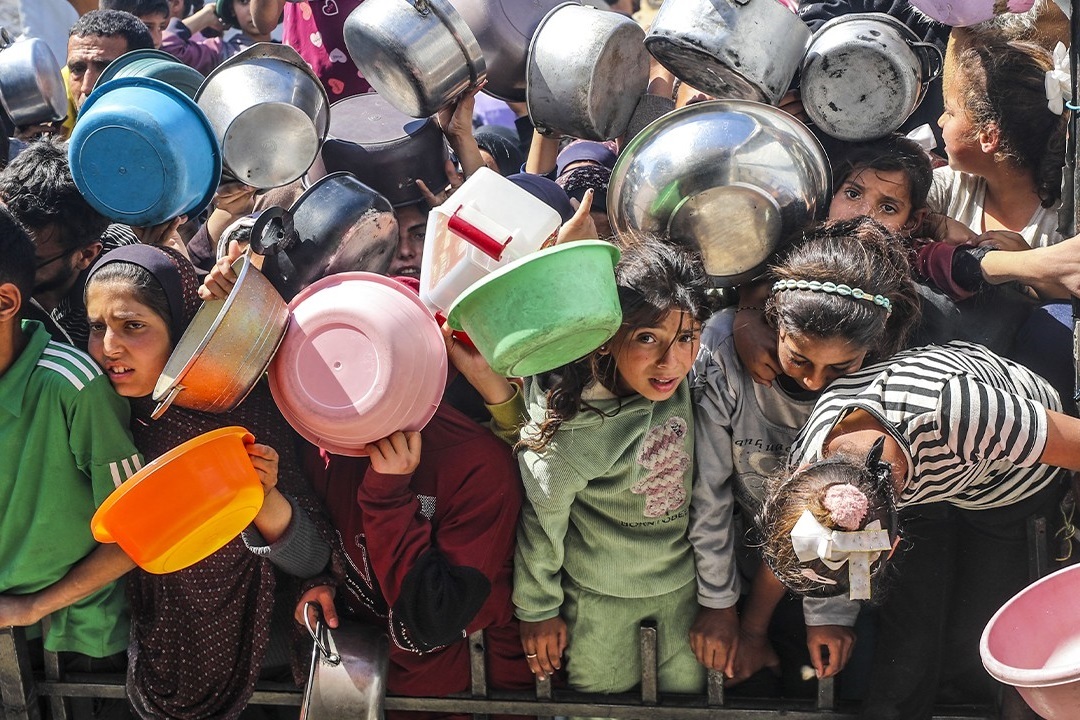People of Gaza Are Living Death
TEHRAN (Defapress) - Amid the ruins of Gaza, where life gasps under the shadow of siege and war, stories of pain and resilience emerge, stories that shake the heart of any human being. Here, hunger is not just a word but a reality that has consumed mothers, children, and aid workers.

Rana Sabouh, a nutrition specialist, says: "I still haven’t forgotten the image of that mother, a woman who collapsed while breastfeeding her baby and fell onto the emergency room bed. Her eyes were sunken from exhaustion and hunger. I feel like the earth should open its mouth and swallow me. How can I tell a mother, begging for her child’s survival, that I have no food?"
A day later, Rana encountered a one-year-old boy whose soul seemed detached from his tiny body. The boy weighed only 5 kilograms, half the normal weight for a child his age. He had no teeth and was so weak he couldn’t even cry. His mother, whom Rana describes as "a skeleton wrapped in skin," looked at her with pleading eyes. When she begged for food, Rana crumbled once again under the bitter reality of her helplessness. "It’s the worst feeling in the world," she says. "When you want to help, but you can’t."
Nihad Abukosh, in a small kitchen in Khan Younis, cooks daily for 1,000 people, yet every morning, more than 2,000 desperate souls swarm in, hoping for a bowl of lentils or beans. "There’s no such thing as a line anymore," he says. "It’s a sea of terrified people, holding empty pots, begging for a bite to eat." Abukosh, who sometimes gives his own meal to a hungry child, is exhausted by the despair in people’s faces. "I look into their eyes, and my heart breaks. I can’t do anything."
In hospitals and medical centers, staff fight death with bare hands. Rana and her team at MedGlobal divide infant formula among several mothers and have cut therapeutic food portions in half. Mothers who are too weak to breastfeed, resort to sugar water; a choice that can lead to deadly infections. Mahmoud Al-Saqqa from Oxfam says: "Parents tell me their children are dizzy from hunger, scavenging for food in the trash. I see starvation in their eyes."
At Al-Awda Hospital, where fuel and oxygen have run out, staff manually pump ventilators to keep patients alive. Mohammad Saleh, the hospital director, speaks of a patient who died after 72 hours of hand-pumped air. "People are dying because we don’t even have the most basic supplies," he says. At Nasser Hospital, doctors use expired gelatin to stop bleeding but cannot save patients who need advanced equipment. Here, they lack even basic tools, drills, sealants, or titanium plates, to treat skull fractures from bombings.
Humanitarian workers, from Rana Sabouh to Nihad Abukosh and Mohammad Saleh, all ask the same question: "How much more cruelty must the world witness before it acts?" They continue their work, fueled by anger, despair, and horror at the siege suffocating Gaza. But resources are running out, kitchens are closing, and hope is fading.
Gaza has no more tears left to cry. The weeping has dried up. All that remains is silence, a silence sometimes broken by a bomb’s blast or a moan that no one hears. Here, people neither live nor die; they live death.
Yet the world only watches this real-time holocaust unfold. As if this tragedy were a show that must go on, a show whose protagonists are starving children, martyred under a policy of collective punishment.
